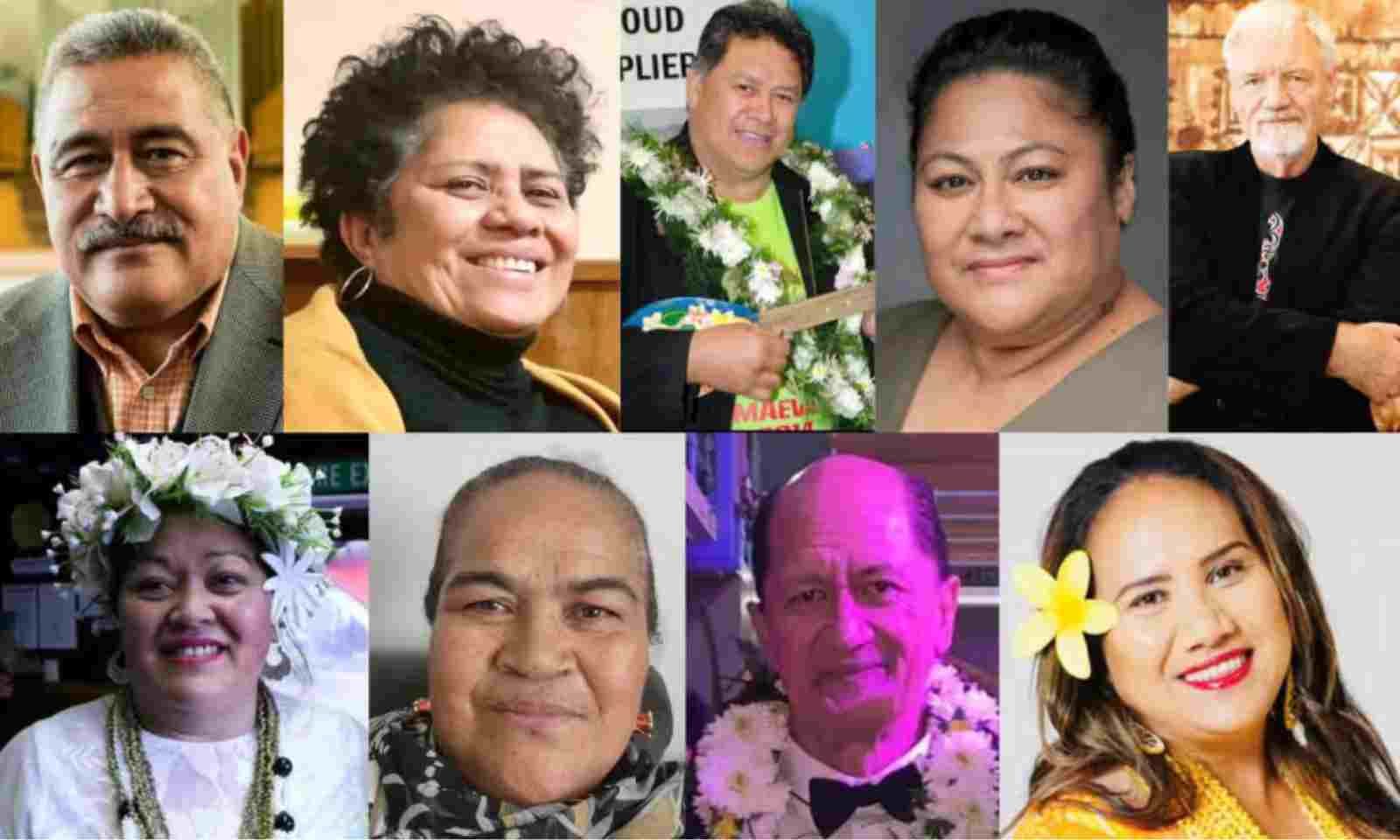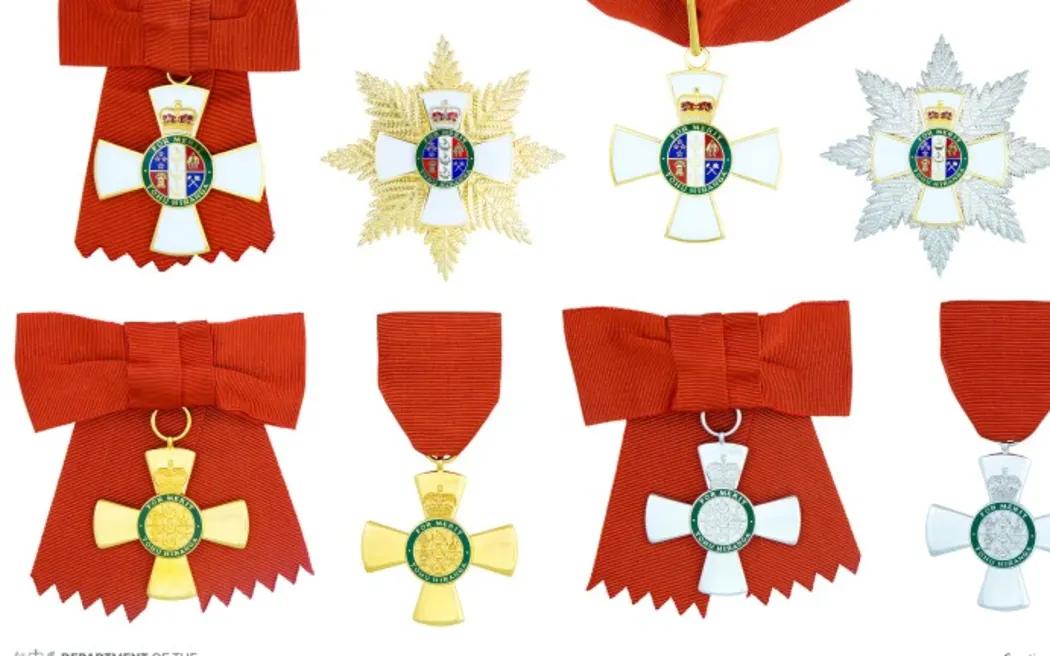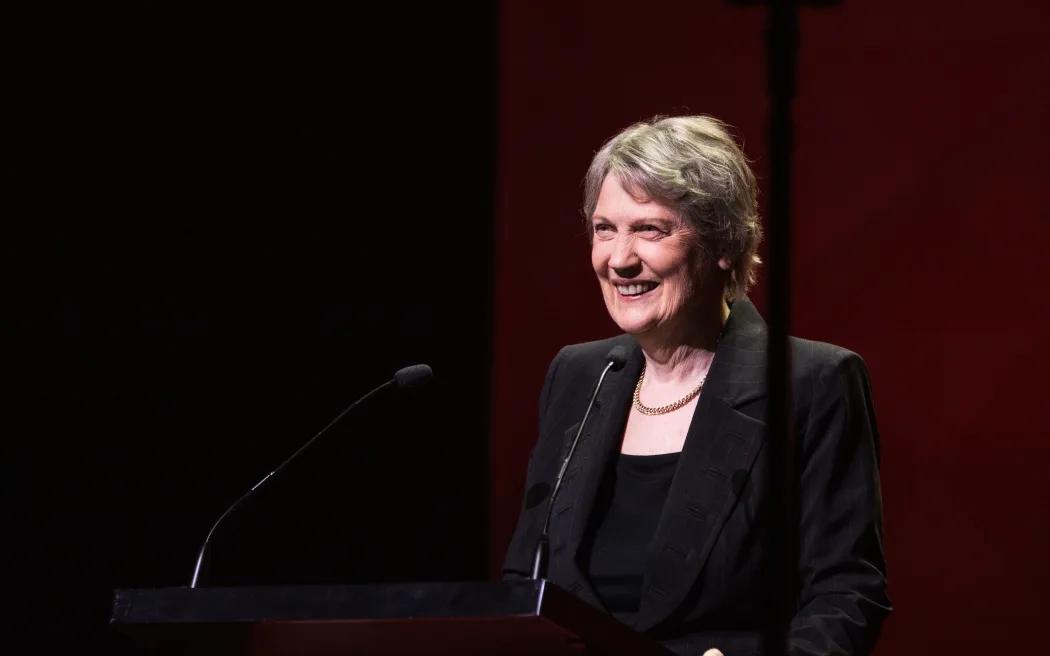

Former All Blacks coach Sir Steve Hansen, receiving his KNZM for services to rugby from former Governor-General, Dame Patsy Reddy, in the 2020 New Year's Honours.
Photo/Photosport
Is the honours system still relevant for NZ?
Up to 400 Honours are granted annually for the New Year and King's Birthday holiday.



Super-council plan for Porirua: Pacific leaders weigh in on referendum

The Naked Sāmoans delivers a hilarious, heartfelt reunion

'There’s an army coming behind me', warns Anae as he joins King’s Honours roll



Super-council plan for Porirua: Pacific leaders weigh in on referendum

The Naked Sāmoans delivers a hilarious, heartfelt reunion

'There’s an army coming behind me', warns Anae as he joins King’s Honours roll
This long weekend, a new list of Kiwis will be crowned with titles under the New Zealand Honour's System, when a list is unveiled on Monday to celebrate the King's Birthday.
Up to 400 Honours are granted annually across lists announced for the New Year and the King's Birthday holiday, with Special Lists occasionally released at other times too.
The titles bestow a smorgasbord of letters after names, like CNZM, Companion of the New Zealand Order of Merit; or ONZM, Officer of the New Zealand Order of Merit, all recognising service to the Crown and to the nation. Some become dames and knights.
But is the honours system still relevant? Are the right number given out to the right people? And are the right people making decisions about who should be recognised?
Here's how it works:
Anyone can nominate a person they think is worthy of a New Zealand royal honour, though at least two other people must submit letters in support of the nomination.
The form is online. About 800 to 1000 nominations are considered each year, the Department of the Prime Minister and Cabinet says.
While those nominated are usually New Zealand citizens, people who are not citizens can also be nominated if they have benefited New Zealand or helped New Zealanders overseas.
The applications are considered by the Cabinet Appointments and Honours Committee; which is a group of government ministers and chaired by the prime minister.
The prime minister then makes the final recommendation to the King.

Recognised for their services to the Pacific community. From top left (clockwise): Reverend Taimoanaifakaofo Kaio, Frances Mary Latu Oakes (JP), Maituteau Karora, Anapela Polataivao, Dr David Telfer Robie, Leitualaalemalietoa Lynn Lolokini Pavihi, Tupuna Mataki Kaiaruna, Mailigi Hetutū and Bridget Piu Kauraka. Photo/PMN/file
Do Kiwis think the honours are still relevant and fit-for-purpose?
Reporter Victor Waters took to the streets of Auckland to get people's views.
"I guess it is kind of less valid of a title than it used to be," one man said. "It is good to recognise people's achievements, ... but I couldn't say whether we're giving them out for the right or wrong reasons."
While, a woman said: "I don't really care, they're just titles - as long as it's not like a grant of a million dollars of the taxpayers money, I don't really mind. It really depends on who's nominated and if they deserve it or not. I think people deserve recognition for their work, as long as it's deserved."
Another woman said: "I still think it's cool to like give knighthoods and stuff, but to those deserving and that have really earned it."
While another man said: "In terms of New Zealand's indigenous perspective - whether Māoridom or Pasifika, they have [honours], and I think we can investigate that too, or perhaps weigh those up. The knighthoods and such, they are honours, but I think they have lost some of their relevance in the times that we live in.
"At the same time, do we throw them out? And I'm not convinced throwing [them] out is the answer." However, he said it may be helpful for a process to be undertaken examining what the honours mean now, the values and ideas behind them, and how New Zealanders want them to evolve: "[That] is something I think might be a valuable or worthwhile offering".

A composite image of some of insignia from the New Zealand Order of Merit. Photo/Department of the Prime Minister and Cabinet
Sirs and Dames not the way for today's New Zealand - Helen Clark
Twenty five years ago, then- Prime Minister Helen Clark got rid of 'sir' and 'dame' titles, in 2000. At that time, those receiving a titular honour were appointed Principal and Distinguished Companions of the New Zealand Order of Merit.
In 2009, the National government led by John Key brought them back.
In 2010, Clark was appointed a Member of the Order of New Zealand, Aotearoa's most senior honour, and says she was "honoured" to accept it.
She believes the honours should be purely New Zealand focused, and not royal honours, though recognises that many people may feel the knighthoods sound posher.
"In this day and age, in New Zealand, 12,000 miles from the United Kingdom, why are we parading the titles like that - I just don't really get it.. We've inherited them from an aristocratic English system, and I just don't think that's consistent with a more egalitarian outlook in New Zealand.
"The ONZ shows the bipartisanship of the system at its best. That came to me as an offer from the Key government."

Former New Zealand Prime Minister Helen Clark. Photo/RNZ/Samuel Rillstone
In 2009, the National government led by John Key brought them back.
In 2010, Clark was appointed a Member of the Order of New Zealand, Aotearoa's most senior honour, and says she was "honoured" to accept it.
She believes the honours should be purely New Zealand focused, and not royal honours, though recognises that many people may feel the knighthoods sound posher.
"In this day and age, in New Zealand, 12,000 miles from the United Kingdom, why are we parading the titles like that - I just don't really get it.. We've inherited them from an aristocratic English system, and I just don't think that's consistent with a more egalitarian outlook in New Zealand.
"The ONZ shows the bipartisanship of the system at its best. That came to me as an offer from the Key government."
She also believes people being honoured should have lived a life of service, and done exemplary work, beyond their paid role.
"It is good to recognise people who have given good service to New Zealand," she says.
During her time as prime minister, Clark chaired the committee who considered who would be put forward for the honours. The process to decide who to recommend for honours was seriously considered, and was hard work, she says, partly because there were so many deserving people nominated.
"Your numbers: 400 a year, it sounds a lot, but believe me, when you're sitting at the Cabinet Honours and Appointments Committee and you've got 200 slots for New Year, and six months later 200 for the King's Birthday weekend - Queen's as it was in my time - it's actually quite hard getting the numbers of good applicants down into those 200 slots.
"And sometimes you have to postpone recognising someone, because there's just not the room - but you say we'll come back to that in six months time'.
"I'd like to think that we were fair, we looked to have honours which were broadly representative of New Zealand: geographically, across our different ethnic communities, across men and women, and then across the kinds of service that you would recognise.
"And certainly we didn't just discount recommendations that came from opposition members of Parliament. We felt that these needed to be genuinely nation-wide and bipartisan, so we did our best I think to get a good spread of people."
This story was first published on RNZ.

